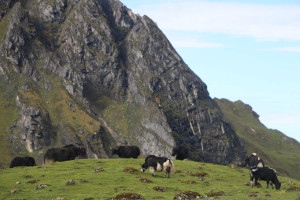Money
The taste of students has changed with the time
Interview Sanjay Thapa
The tenth India Education and Career Fair 2016 is being held at Hotel Annapurna in the Capital on July 6 and 7, and at Hotel Namaskar in Biratnagar on July 9 and 10. Organised by SAPE, a Kolkata-based event management company, the fair is the first of its kind in Nepal that features only Indian academic institutions. The Post caught up with Sanjay Thapa, founder and managing director of SAPE, to talk about the different facets of fair. Excerpts:
How has the SAPE Education and Career Fair evolved in the last decade?
Ten years is a long journey and a lot has been changed in this period. A very few fairs used to happen in Kathmandu when we started back in 2007. The main idea of the event was to bring students and education institutions together so the former gets first hand information about the academic institutions they want to pursue. Over the years, students from the digital world don’t only have to rely on the information they get in the fair but they can immediately verify through the internet. Similarly, the standard of interaction between the students and the representatives from the academic institutions has gone up; they know what exactly what they are looking for which was not in the past. From the very beginning we make sure that the institutions in the fair have good reputation and accreditation from the government agencies.
Has the taste of students changed in these years?
When we were students the mark sheet determined our career path. If you got good marks you would go to science, if you scored medium marks you tend to choose commerce while humanities was the choice of poor students. But this has changed drastically over the years. Now even if students get the best marks they tend to go do English Honours or take management courses. What is important today is whatever course you choose you excel on it. With the change in times, there is so much diversity in the course that students can do BTech with LLB. So the traditional ways of choosing career path is gradually changing with the passes of time.
You have been organising fair in nine different countries. Is the preference of students from these countries same or its different?
Honestly speaking, Nepalis are more enthusiastic about education compared to those from other countries. I am in touch with the colleges and universities across the world and they give very good feedback about the Nepali students. Nepali students understand why they are in India and what their objective is. Being a pioneer fair organiser this is very encouraging to me as the largest numbers of foreign students in India are Nepalis. Out of around 110,000 foreign students from around 50 countries last year, some 20,000 are from Nepal alone.
Education fairs are organised round the year in Nepal. How is your is this different from others?
I can proudly say SAPE is a pioneer in organising education fairs in Nepal and the first to focus only in Indian education. It has a history of successfully conducting nine different fairs. Unlike other fairs, we don’t run after the numbers of students but focus on quality students who have high prospect of taking an Indian degree. Similarly, we are quite aware that we are just an event organising company therefore we don’t indulge ourselves in the academic things. We bring students and colleges together and let the students decide what they want. Despite the fact that we started our venture from Nepal, we are not just limited to Nepal, but have expanded to Myanmar, Bangladesh, Bhutan, Vietnam, Indonesia and Thailand too. This was possible as students perceived us well so did the participating institutions.
Finally, what is your suggestion to the students who come to your fair?
I request all the students to put 10 years prospect in mind before choosing a career path. They have to listen to themselves rather than falling into the parents or peer group pressure. If you plan right you make better career if not you lose.




 13.12°C Kathmandu
13.12°C Kathmandu













